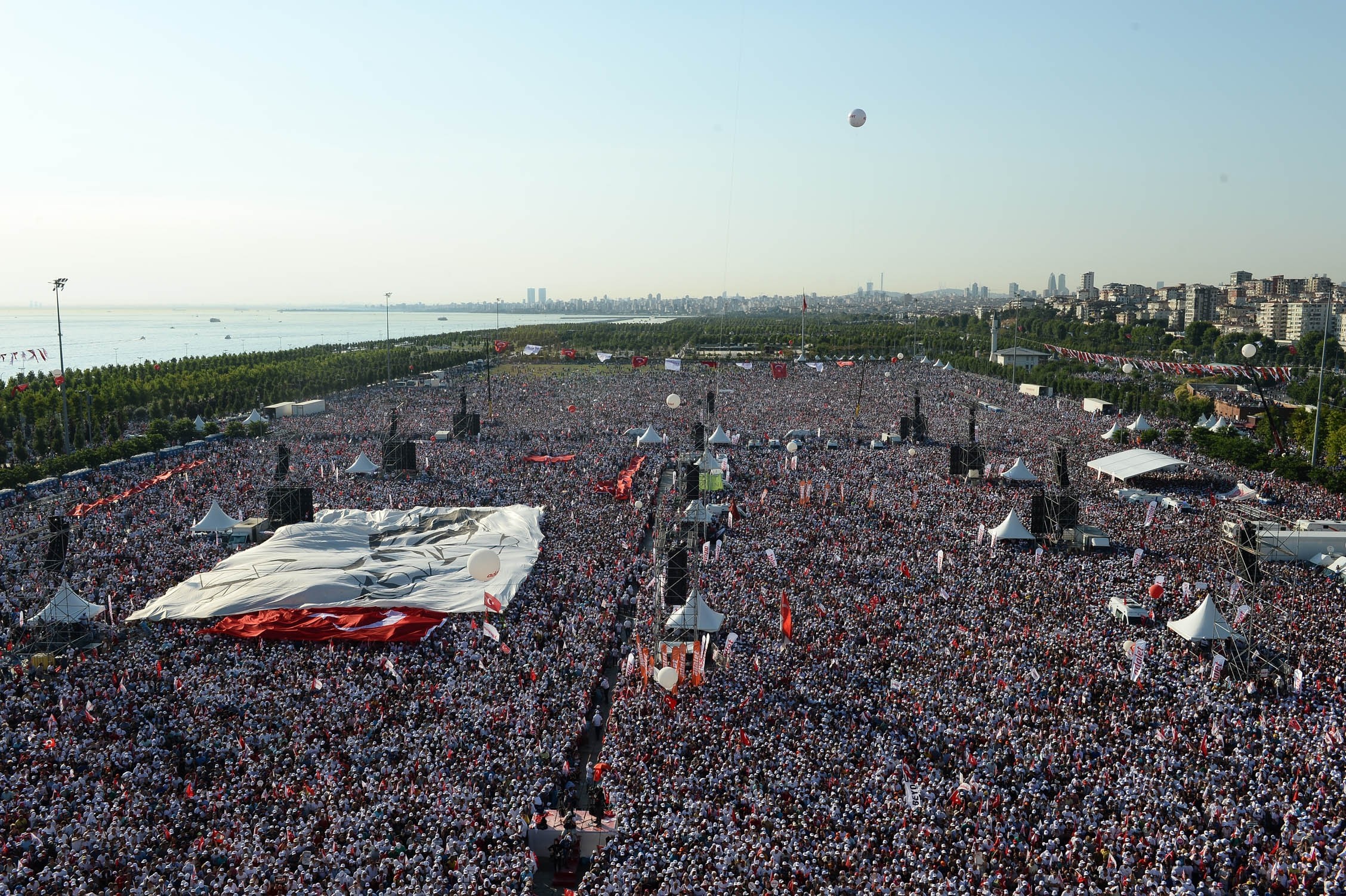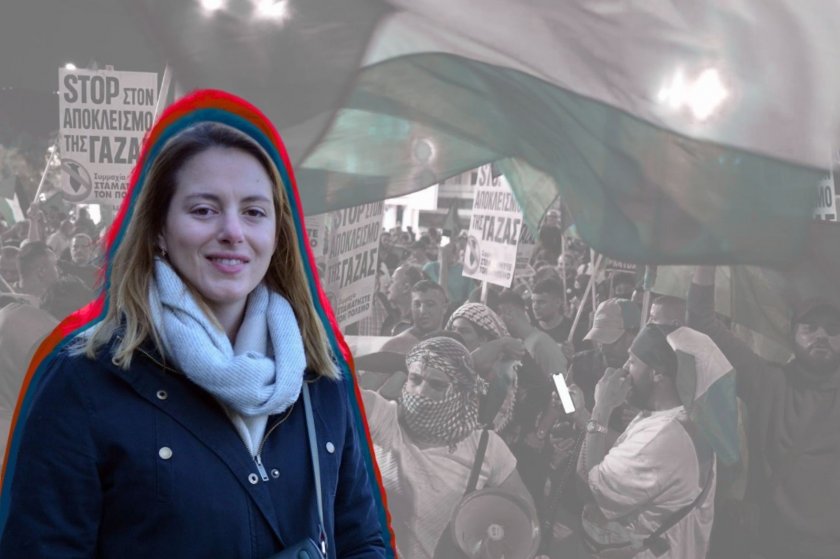Millions stand up to Turkey's tyrant
Sunday saw a reported two-and-a-half million people taking part in what was the biggest public display of opposition to President Tayyip Erdogan.

Steve SWEENEY
What started as a solitary walk for justice started by a Turkish opposition Republican People’s Party (CHP) MP became one of the largest demonstrations seen in the country for generations.
Sunday saw a reported two-and-a-half million people taking part in what was the biggest public display of opposition to President Recep Tayyip Erdogan since he came to power.
The “Justice March" began as a response to the conviction of CHP MP Enis Berberoğlu who was sentenced to 25 years in prison on charges of revealing state secrets.
He is the first CHP politician to be jailed since the lifting of immunity from prosecution for MPs — a move which the party voted in favour of while declaring it unconstitutional.
Berberoglu was accused of passing a video to the opposition Cumhuriyet newspaper showing a lorry loaded with weapons which were allegedly being taken across the Syrian border to arm Isis fighters.
Erdogan denied the allegations and said that Cumhuriyet editor-in-chief Can Dundar would pay a “heavy price” for undermining Turkey’s international reputation.
Dündar — who is now living in exile in Germany — was sentenced to five years in jail in absentia along with the head of the newspaper’s Ankara office Erdem Gül.
CHP leader Kemal Kılıçdaroğlu began the 265-mile walk from Turkey’s capital Ankara on June 15 before arriving in Maltepe in Istanbul 24 days later.
Millions joined the rally, raising the slogans of “rights, law and justice,” as they filed into Istanbul square.
The Justice March became a symbol of the struggle for justice in a country where Erdoğan secured increased and unprecedented powers in April’s constitutional referendum.
There has been an escalation in attacks on all forms of opposition to the brutal tyrant’s rule since the failed coup attempt of July 15 last year.
Opposition MPs from the People’s Democratic Party (HDP), including co-leaders Selahattin Demirtaş and Figen Yüksekdağ, are in prison and the country is the leading jailer of journalists in the world.
Thousands of academics have been sacked and purged for signing a peace petition and over 100,000 government workers have been sacked.
And just last week human rights campaigners — including the Turkish director of Amnesty International — were arrested at a hotel and charged with terrorism offences.
Broad layers of Turkish society participated in the march and rally, from academics and trade unionists to disability rights campaigners and environmentalists.
Confederation of Progressive Trade Unions (DİSK) president Kani Beko said that they had supported the rally as 80 million people in Turkey are demanding justice.
He said: “Millions of people today express their demands for justice here. We have close to 11 MPs and 161 journalists in prison.
“We have civil servants who have been sacked due to government decrees under the state of emergency.
“This march is a symbol of hope for people who seek justice.”
But in a predictable response, Erdogan dismissed the protesters as terrorists.
He said the CHP had gone beyond political opposition and was “acting with terrorist organisations and the forces inciting them in our country.”
It is something that I was accused of myself when travelling to the south-eastern city of Cizre where I was detained and grilled by anti-terror police.
The march was also dedicated to teachers Nuriye Gülmen and Semih Özakça, who were jailed last month and have been on hunger strike for over 70 days.
Many of those who arrived in Istanbul were wearing T-shirts calling for justice for the pair, who were dismissed from their posts by a government decree.
The demonstrators raised slogans for freedom and democracy as Kılıçdaroğlu told the rally that the demands for justice were “for the state of emergency to be lifted; for politics to be removed from courts, barracks, and the mosques; for journalists to be released; for universities to be freed; for the political power behind the coup attempt to revealed; for the democratic parliamentary system to be active again; for real equality between men and women to be achieved; for youth to be embraced rather than considered as potential criminals and for all anti-democratic practices to be ended.”
He also listed a 10-point manifesto for justice. However, any official platform will need to be discussed, debated and agreed by the broader forces involved in the struggle.
“We want a Turkey where people’s thoughts are not silenced,” he said as he declared “the wall of fear has now been demolished,” vowing that he would “not stop the fight for justice until the demands listed in the manifesto are met.”
The march represents a step forward in the struggle for democracy in Turkey and all eyes will be on the democratic forces in the country.
The struggle cannot be left to the CHP alone.
Those that participated in the march showed the broader forces involved and the extent of the struggle for justice in Turkey.
A manifesto cannot be launched in a top-down manner from a platform. Any demands should be debated, discussed and agreed upon by the labour and progressive movement in Turkey.
We saw glimmers of hope in the demonstrations that were sparked following the corruption of the rigged constitutional referendum when people took to the streets in anger.
But there was no political leadership given to those protests from either the CHP or HDP opposition parties and the opportunity to build a mass opposition movement was squandered as they put their faith in naive and futile legal challenges.
But the scale of the anti-Erdoğan opposition in Turkey is clear as millions showed over the weekend.
When the working class unite they are an unstoppable force and it is this unity, between Turkish and Kurdish people, that Erdoğan fears.
Sunday’s march showed the future belongs to the people of Turkey.
{{325975}}
{{325682}}
Forwarding to the next article...
10 seconds remaining





Follow Evrensel